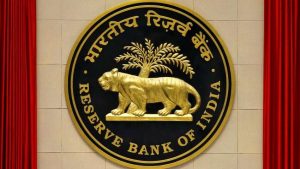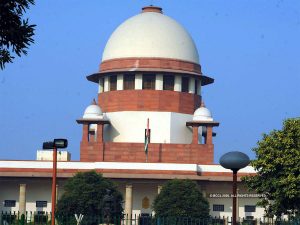Today Current Affairs: 20th July 2022 for UPSC IAS exams, State PSC exams, SSC CGL, State SSC, RRB, Railways, Banking Exam & IBPS, etc
Table of Contents
RBI Seeks Ban On Cryptocurrency:

The Reserve Bank of India (RBI) has recommended a ban on cryptocurrencies citing ‘destabilising effects’ for the country’s monetary and fiscal health.
- China has declared all cryptocurrency transactions illegal, effectively imposing a complete ban, whereas El Salvador has permitted Bitcoin as legal tender.
- At the moment, there is no legislature that covers cryptocurrencies in India. In India, owning cryptocurrencies is still not illegal. In 2020, the Supreme Court had struck down a ban on trading of crypto currency in India, which was imposed by the Reserve Bank of India (RBI).
- Central bank has been cautioning people against the use of virtual currencies since as far back as 2013.
- In April 2018, the RBI had prohibited regulated entities from dealing in virtual currencies or providing services for facilitating any person or entity in dealing with or settling them.
- The directive was set aside by the Supreme Court in March 2020.
- Subsequently, in May 2021, the central bank advised its regulated entities to continue to carry out customer due diligence processes for transactions in such currencies, in line with regulations governing standards for Know Your Customer (KYC),
- Anti-Money Laundering, Combating of Financing of Terrorism, obligations under Prevention of Money Laundering Act, 2002, etc. and Foreign Exchange Management Act (FEMA) Norms for overseas remittances.
- The Union Budget 2022-2023 also proposed to introduce a digital currency in the coming financial year.
Global Platform For Disaster Risk Reduction 2022:

The Global Platform for Disaster Risk Reduction, 2022 (GP DRR 2022) took place in Indonesia.
- The outcome was summarised in the Bali Agenda for Reilience
- Theme: From Risk to Resilience: Towards Sustainable Development For All in a Covid-19 Transformed World.
- Global Platform was the first global gathering for disaster risk reduction (DRR) actors since the Covid pandemic, and fell exactly midway between the UNFCCC COP26 and UNFCCC COP27 negotiations.
- It is a biennial multi-stakeholder forum, a critical component of the monitoring and implementation process of the Sendai Framework for Disaster Risk Reduction (2015-2030).
- The UN General Assembly recognizes the same.
Varanasi Has Been Selected As The SCO Region’s First Tourism And Cultural Capital:

Ahead of the Shanghai Cooperation Organisation (SCO) Summit to be held in September 2022, Varanasi has been selected as the SCO region’s first “Tourism and Cultural Capital for 2022-23.
- The SCO summit will be held in Samarkand, Uzbekistan where Iran and Belarus are likely to be the two newest additions to the SCO.
- Earlier, the Cabinet was apprised of the Agreement signed among the Shanghai Cooperation Organisation, SCO, member states on cooperation in the field of youth work among the authorized bodies of the member states of SCO.
- India will host the SCO summit next year 2023.
- Varanasi’ “Cultural and Tourism Capital” has been decided under a new rotating initiative to promote people-to-people contacts and tourism among the member states.
- Each year a city of the cultural heritage of a member country that will take over the rotating Presidency of the organisation will get the title to highlight its prominence.
- The new initiative will come into force after the Samarkand summit following which India will take over the Presidency and host the next Heads of the State summit.
Kerala’s Protest Against ESZ Notification:

Farmers in Kerala are protesting against Supreme Court’s order to establish Eco-Sensitive Zones (ESZs).
- The SC has directed to have a mandatory ESZ of minimum one kilometre measured from the demarcated boundary of every protected forest, including the national parks and wildlife sanctuaries.
- The Kerala State Assembly demands the Centre to notify the zones by considering the State government’s proposals that marked the ESZ as zero around 10 protected areas of the State.
- The notification has stirred an unpleasant situation in Kerala where any regulatory mechanism on land and land use patterns would have political ramifications.
- Kerala is concerned about the possible impact on its unique landscape.
- Nearly 30% of Kerala is forested land and the Western Ghats occupies 48% of the State.
- Due to the high density of human population near the notified protected areas, farmer’s groups and political parties have been demanding that all human settlements be exempt from the ESZ ruling.
- The State Government apprehends that the SC’s notification may worsen the ground situation as it would adversely impact the interests of the State besides upsetting the lives of millions living near the protected areas.
Eco-Sensitive Zones:
- The National Wildlife Action Plan (2002-2016) of the Ministry of Environment, Forest and Climate Change (MoEFCC) stipulated that state governments should declare land falling within 10 km of the boundaries of national parks and wildlife sanctuaries as eco fragile zones or Eco Sensitive Zones (ESZs) under the Environmental (Protection) Act, 1986.
- While the 10-km rule is implemented as a general principle, the extent of its application can vary.
- Areas beyond 10-km can also be notified by the Union government as ESZs, if they hold larger ecologically important “sensitive corridors.”
DIGI YATRA:

The Consultative Committee meeting of the Ministry of Civil Aviation was held in New Delhi to discuss ‘DIGI YATRA’.
- It is a project conceived to achieve contactless, seamless processing of passengers at Airports, based on Facial Recognition Technology (FRT).
- The project envisages that any traveller may pass through various checkpoints at the airport through a paperless and contactless processing, using facial features to establish the identity which would be linked to the boarding pass.
- It provides a decentralized mobile wallet-based identity management platform which is cost effective and addresses privacy/data protection issues in implementation of Digi Yatra.
- In the first phase, Digi Yatra is proposed to be rolled out at two Airports namely Varanasi and Bengaluru in August 2022 and at five Airports namely Pune, Vijayawada, Kolkata, Delhi and Hyderabad by March next year.
- Airports Authority of India (AAI) will identify their airports where Digi Yatra would be implemented in a phased manner.
Objectives of DIGI YATRA:
- Enhance passenger experience and provide a simple and easy experience to all air travellers.
- Achieve better throughput through existing infrastructure using “Digital Framework”.
- Result in lower cost operations.
- Digitize current manual processes and to bring better efficiencies
- Enhance security standards and improve current system performance.
- Rollout of “Digi Yatra” system with a digital “ID” backed by a strong verifiable government issued identity like AADHAAR.
Minority Status Of Religious And Linguistic Communities:

Every person in India can be a minority in one State or the other. Minority status of religious and linguistic communities is “State-dependent”, the Supreme Court said.
- A Marathi can be a minority outside his home State e.g. Maharashtra. Similarly, a Kannada-speaking person may be in minority in States other than Karnataka.
- The court was hearing a petition complaining that followers of Judaism, Bahaism and Hinduism, who are the real minorities in Ladakh, Mizoram, Lakshadweep, Kashmir, Nagaland, Meghalaya, Arunachal Pradesh, Punjab and Manipur, cannot establish and administer educational institutions of their choice because of non-identification of ‘minority’ at the State level.
- But the court indicated that a religious or linguistic community which is a minority in a particular State, can inherently claim protection and the right to administer and run its own educational institutions under Articles 29 and 30 of the Constitution.
- The petition has argued that the recognition of Muslims, Christians, Sikhs, Buddhists and Parsis nationally by the Centre as ‘minorities’ ignored the fact that religious communities such as Hindus were “socially, economically, politically non-dominant and numerically inferior” in several States.
NAMASTE Scheme For Cleaning Of Sewers And Septic Tank:

Minister of State for Housing and Urban Affairs Kaushal Kishore said, the Government has formulated a National Action Plan for Mechanized Sanitation Ecosystem- NAMASTE scheme for cleaning of sewers and septic tank.
- The scheme is a joint venture of Department of Drinking Water and Sanitation, Ministry of Social Justice and Empowerment and the Ministry of Housing and Urban Affairs.
- It aims to achieve outcomes like zero fatalities in sanitation work in India, no sanitation workers come in direct contact with human faecal matter and all Sewer and Septic tank sanitation workers have access to alternative livelihoods.
- The Ministry has shortlisted type of machineries and core equipments required for maintenance works, safety gear for Safai Mitras.
- The same is also available on the Government e-Marketplace (GeM) portal for ease of their procurement by States and Urban Local Bodies.
- Mr Kaushal Kishore said that Skill Development and trainings of Safai Mitras is being taken up with the support of the Ministry of Social Justice and Empowerment through the National Safai Karamchari Finance Development Corporation.
Marburg Virus:

The first two cases of the Marburg virus, a highly infectious Ebola-like disease, have been confirmed officially by Ghana after test results were verified by a Senegal laboratory.
- This outbreak is only the second time that the disease has been detected in West Africa.
- Marburg virus disease (MVD), earlier known as Marburg haemorrhagic fever, is a severe, often fatal hemorrhagic fever.
- Marburg, like Ebola, is a filovirus; and both diseases are clinically similar.
- Rousettus fruit-bats are considered the natural hosts for Marburg virus. However, African green monkeys imported from Uganda were the source of the first human infection.
- It was first detected in 1967 after simultaneous outbreaks in Marburg and Frankfurt in Germany; and in Belgrade, Serbia.
- After the onset of symptoms, which can begin anytime between 2 to 21 days, MVD can manifest itself in the form of high fever, muscle aches and severe headache.
- The disease has an average fatality rate of around 50%.
- There is no approved antiviral treatment or vaccine for MVD as of now.
- It can be managed with supportive care.
- According to the WHO, rehydration with oral or intravenous fluids, and treatment of specific symptoms can help prevent death.
e-Shram Portal:

The government said around 28 crore unorganised workers have been registered on e-Shram Portal.
- In a written reply in Lok Sabha, Minister of State for Labour and Employment Rameswar Teli said the government had launched e-Shram portal in August last year with an objective to create a national Database of unorganised workers.
- It also facilitates delivery of Social Security Schemes and Welfare schemes to the unorganised workers.
- He said the Centre is also implementing Prime Minister Street Vendor’s Atmanirbhar Nidhi (PM SVANidhi Scheme) since 1st June 2020 to facilitate collateral-free working capital loan to street vendors to restart their businesses, which were adversely impacted during the Covid-19 pandemic.
- Mr Teli said over 33 lakh loans amounting to above three thousand six hundred crore rupees have been disbursed to over 30 lakh beneficiaries under the scheme till 11th of this month.




